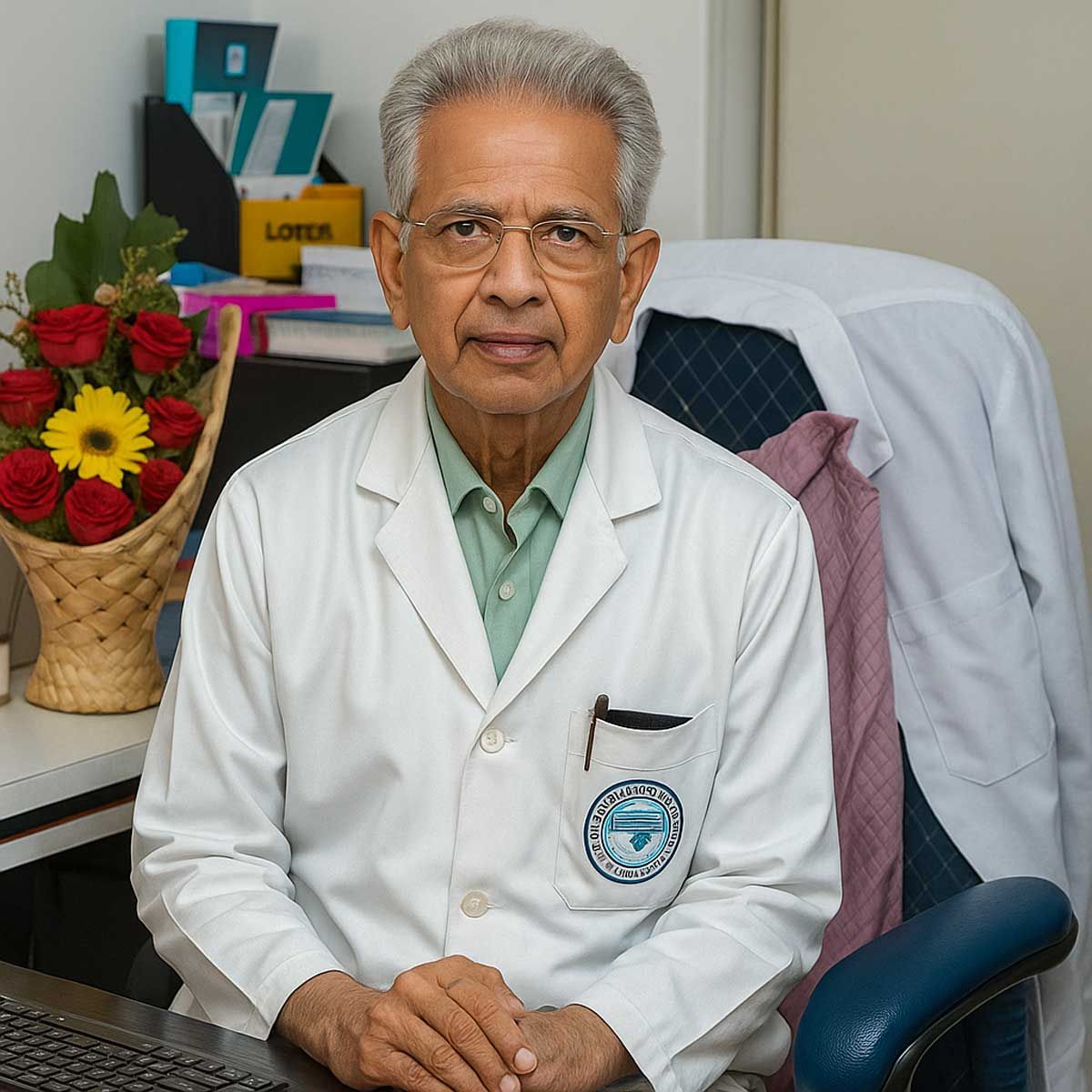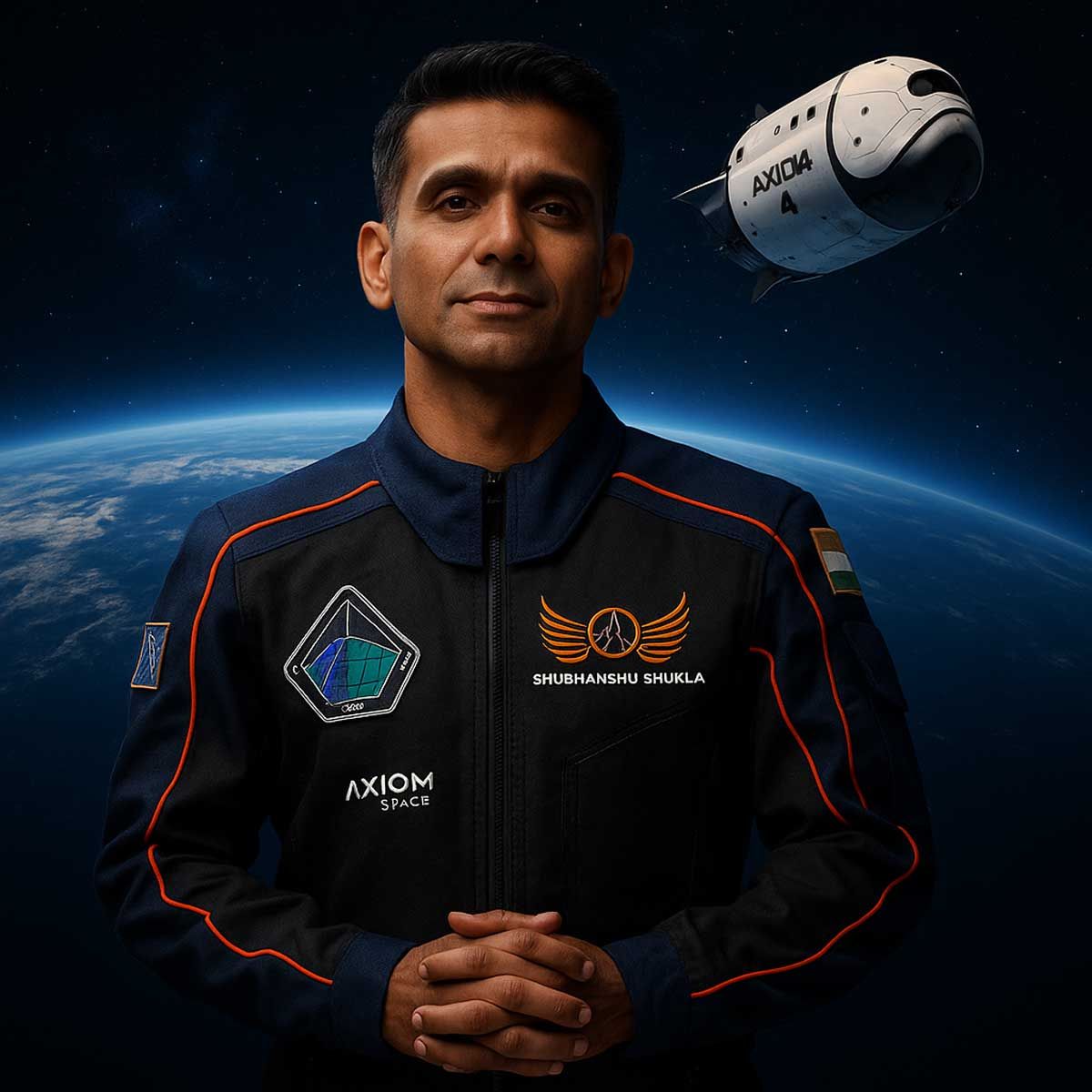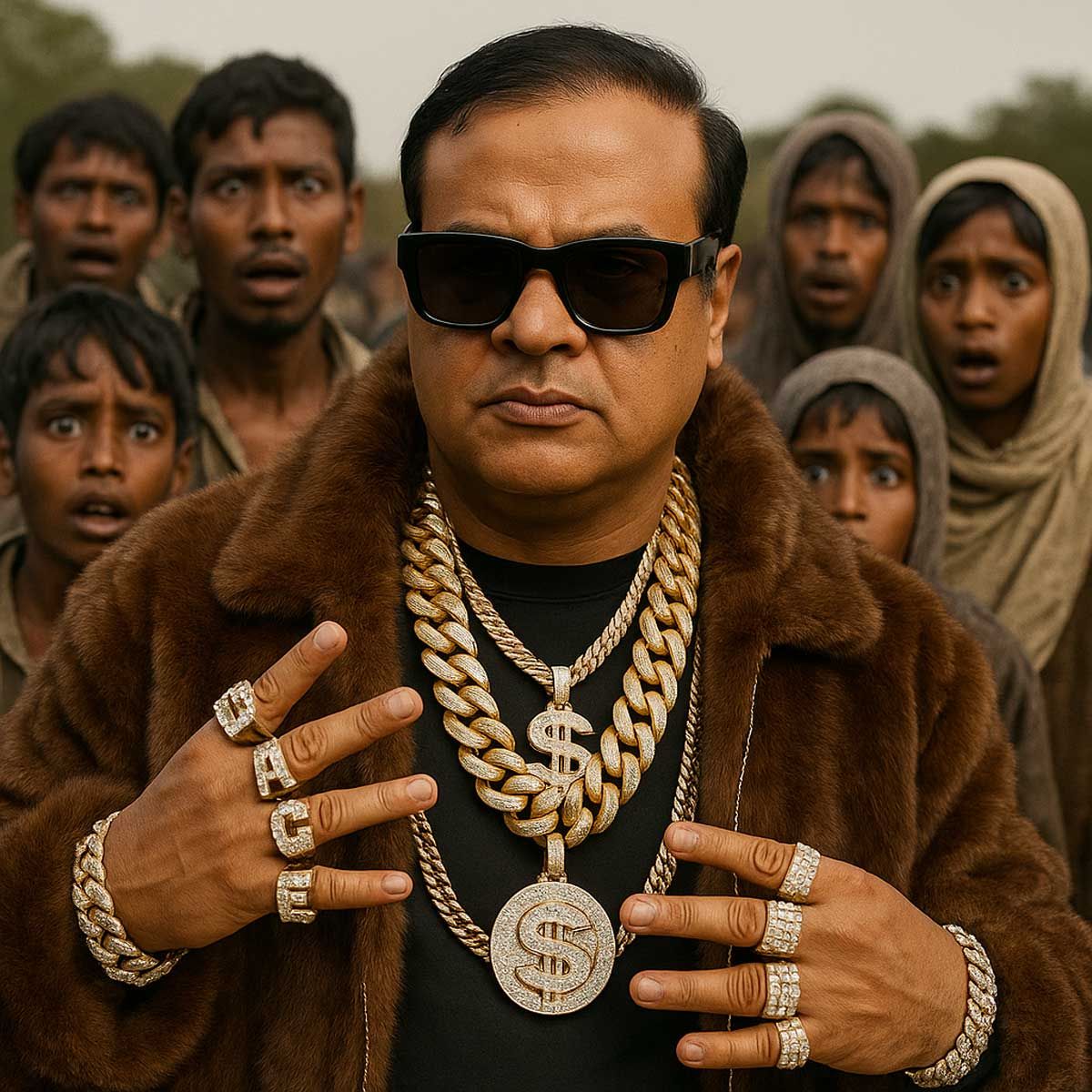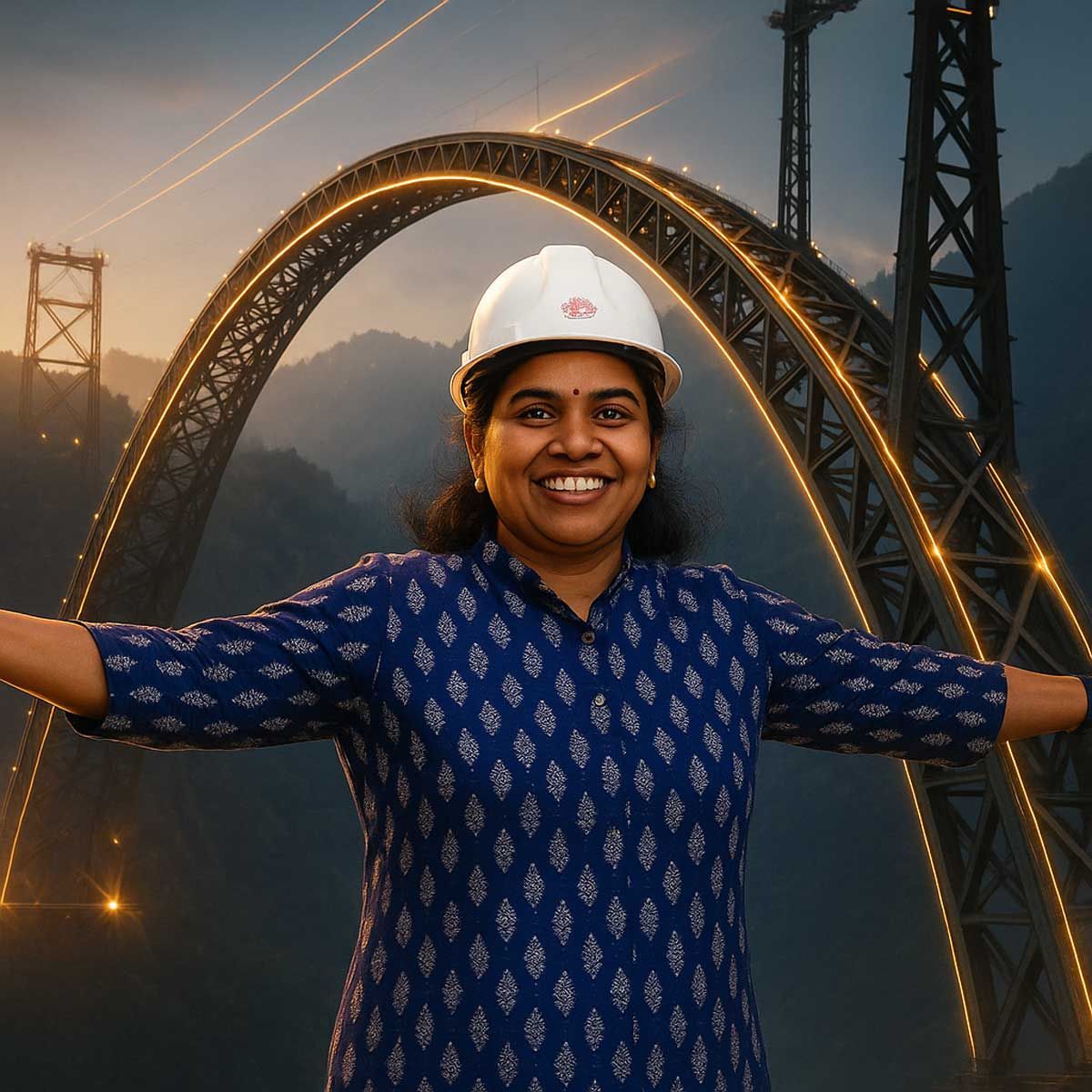More Coverage
Twitter Coverage
Satyaagrah
Written on
Satyaagrah
Written on
Satyaagrah
Written on
Satyaagrah
Written on
Satyaagrah
Written on
JOIN SATYAAGRAH SOCIAL MEDIA
"One Nation One Election": The Kovind Committee proposes a single electoral roll and Photo IDs for polls, with plans for simultaneous elections for Lok Sabha and State Assemblies initially, followed by Municipalities and Panchayats within 100 days
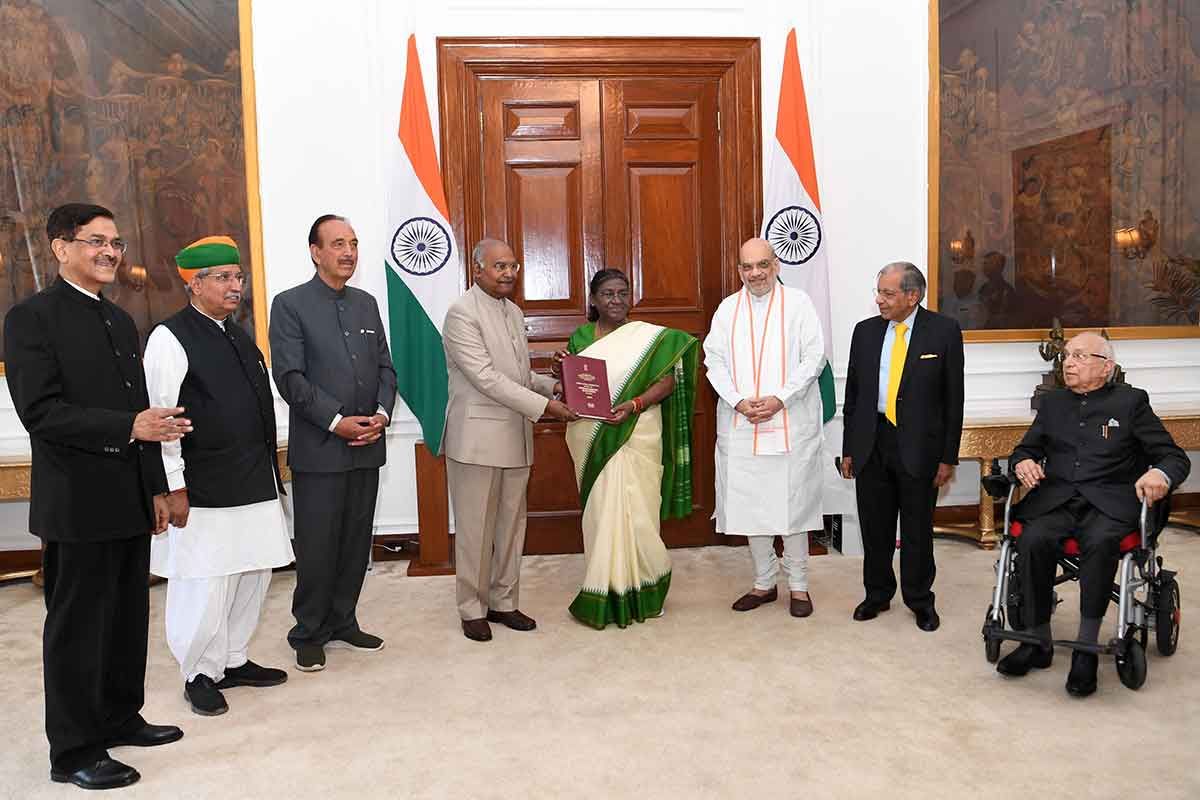
A committee headed by Ram Nath Kovind, focusing on 'One Nation One Election', has suggested having a single electoral roll and electoral Photo Identity Cards (EPIC) for elections at all three levels of government.
|
The high-level committee presented its recommendations to President Draupadi Murmu on Thursday. It proposed a two-step strategy for conducting simultaneous elections for the Lok Sabha, state assemblies, and local bodies.
In the first phase, the committee recommended that elections for the Lok Sabha and State Legislative Assemblies occur at the same time. This would then be followed by the second phase, where elections to Municipalities and Panchayats would take place within 100 days.
Additionally, the Committee recommends that if elections result in a hung parliament and a vote of no confidence leads to the dissolution of the house, new elections should be conducted. These elections would determine the government for the remaining duration of the five-year term.
This approach aims to streamline the electoral process, making it more efficient and unified across the nation.
|
According to the committee's findings, in scenarios where new elections are conducted for State Legislative Assemblies, the newly formed Legislative Assembly should, unless dissolved earlier, continue until the conclusion of the Lok Sabha's current term. This suggestion ensures a synchronicity in the electoral cycle of both the national and state levels, promoting a more coordinated governance structure.
To implement these changes, the committee has outlined the need for a Constitutional Amendment Bill. This bill would necessitate modifications to Article 83, which deals with the Duration of Houses of Parliament, and Article 172, concerning the Duration of State Legislatures. Importantly, the committee notes that this amendment would not require ratification by the states, simplifying its adoption process. This step is pivotal in aligning the legislative frameworks with the proposed electoral reforms.
The committee's approach to formulating its recommendations has been thorough and considerate of India's constitutional fabric. By examining the existing constitutional framework, the committee has strategically devised its suggestions to ensure they align with the Constitution's spirit. This careful consideration ensures that the proposed changes would necessitate minimal amendments, preserving the essence of the Constitution while enhancing the electoral process.
|
Finally, after extensive discussions and analysis, the committee confidently asserts that its recommendations, once implemented, will significantly improve various aspects of the electoral process. These enhancements include increased transparency, inclusivity, and ease for the voters, ultimately boosting their confidence in the electoral system. The committee's thoughtful and detailed recommendations mark a significant step towards electoral reform in India, aiming to foster a more efficient, unified, and democratic electoral process.
According to the committee, conducting elections at the same time for different levels of government will not only streamline the development process and enhance social cohesion but also strengthen the democratic foundations of the country. This, in turn, is expected to better realize the aspirations of the nation, known as Bharat.
In a significant step towards electoral reform, the Kovind-led committee presented its comprehensive report to President Droupadi Murmu at Rashtrapati Bhavan earlier today. This report, focused on the 'One Nation One Election' initiative, marks a pivotal moment in the consideration of this electoral reform.
Spanning an extensive 18,626 pages, the committee's report is the culmination of thorough consultations, expert opinions, and detailed research conducted over 191 days since its establishment on September 2, 2023. This exhaustive process underscores the meticulous approach the committee has taken to ensure a well-rounded examination of the proposal for simultaneous elections.
|
The committee boasts a distinguished panel of members, including Amit Shah, the Union Minister of Home Affairs and Minister of Cooperation; Ghulam Nabi Azad, the former Leader of Opposition in the Rajya Sabha; NK Singh, the former Chairman of the 15th Finance Commission; Subhash C Kashyap, the former Secretary General of the Lok Sabha; Harish Salve, a Senior Advocate; and Sanjay Kothari, the former Chief Vigilance Commissioner. Additionally, Arjun Ram Meghwal, Minister of State (Independent Charge) for the Ministry of Law and Justice, participated as a Special Invitee, with Dr. Niten Chandra serving as the Secretary of the high-level panel.
This diverse committee engaged in extensive consultations to gather a wide range of perspectives on the proposal. Notably, 47 political parties were invited to submit their views and suggestions on the matter. Out of these, a substantial majority, totaling 32 parties, expressed their support for the concept of simultaneous elections. These discussions were not superficial; many political parties engaged in in-depth dialogues with the committee, reflecting the significance of this proposed reform and the varied opinions within the political landscape.
In an ambitious move to gauge public opinion on the 'One Nation, One Election' concept, a public notice was issued across newspapers in all states and Union territories of India. The response was overwhelming, with 21,558 citizens sharing their views. Remarkably, 80% of these respondents voiced their support for simultaneous elections, highlighting a strong public consensus in favor of this electoral reform.
|
To further enrich the committee's understanding and ensure a comprehensive evaluation of the proposal, an array of legal experts was consulted. This included four former Chief Justices of India and twelve former Chief Justices of major High Courts, alongside four former Chief Election Commissioners of India, eight State Election Commissioners, and the Chairman of the Law Commission of India. These experts were invited for direct interactions with the committee, providing an invaluable depth of knowledge and perspective. Additionally, the views of the Election Commission of India, a key stakeholder in this process, were specifically sought to ensure a well-rounded analysis.
The committee's approach to understanding the implications of simultaneous elections extended beyond the legal domain. Apex business organizations such as the Confederation of Indian Industry (CII), the Federation of Indian Chambers of Commerce & Industry (FICCI), the Associated Chambers of Commerce and Industry of India (ASSOCHAM), and numerous eminent economists were consulted to assess the economic impacts of the current asynchronous election system. These stakeholders presented a unanimous view on the economic benefits of moving towards simultaneous elections, highlighting the detrimental effects of staggered electoral cycles on the economy. They pointed out how intermittent elections contribute to inflation and economic slowdown, adversely affecting the nation's growth trajectory.
Moreover, the discussions revealed that the current practice of holding elections at different times has negative repercussions not just on economic parameters but also on the quality of public expenditure and various societal outcomes, including education. The fragmented electoral schedule was also cited as a factor disrupting social harmony, underscoring the multifaceted benefits of transitioning to a unified electoral process.
In September of the previous year, the central government took a significant step by establishing a high-level committee to thoroughly examine the 'One Nation, One Election' initiative. Tasked with making recommendations for implementing simultaneous elections throughout the country, this committee's formation marked a critical point in India's journey towards potentially transformative electoral reform. Through its extensive consultations and research, the committee aimed to lay down a roadmap that could lead to more efficient, economically sound, and socially cohesive electoral practices in India.
|
In Case of Hung House, Fresh Elections Can Be Held to Elect New House for Rest of the Term: Kovind Committee Report on One Nation One Election
The Kovind Committee, tasked with exploring the feasibility of 'One Nation One Election', has laid out a recommendation for scenarios where a hung parliament occurs. According to the committee, led by former President Ram Nath Kovind, if a no-confidence motion results in the dissolution of the House, it proposes that fresh elections should be conducted. These elections would then determine the government for the remaining portion of the five-year term, ensuring that the democratic process remains uninterrupted and responsive to the electorate's will.
Further detailing its recommendations, the committee suggested a specific protocol for the tenure of the House of the People (Lok Sabha) in the event of such fresh elections. The newly elected House's term would only extend for the remainder of the previous House's full term. Upon the expiration of this period, the House would be automatically dissolved. This recommendation aims to maintain the integrity and scheduled cadence of electoral cycles, even in the face of political uncertainty.
Expanding on its vision for a synchronized electoral process, the committee also recommended that elections for Municipalities and Panchayats align with those for the House of the People. By conducting simultaneous elections for the Lok Sabha and state assemblies in a first step, and then holding local body polls within 100 days in a second step, the committee believes that a more cohesive and efficient electoral system can be achieved. This broad synchronization, however, would necessitate ratification by no less than one-half of the States, requiring a collaborative effort across India's political landscape to bring about such significant electoral reform.
After thorough and comprehensive discussions, the committee dedicated to the 'One Nation One Election' initiative has reached a decisive conclusion. It believes firmly that the recommendations it has put forward will significantly improve the transparency, inclusivity, ease, and confidence of voters across India. This positive outcome would mark a substantial advancement in the way elections are conducted, ensuring that every citizen's vote is more meaningful and impactful.
The committee has highlighted the widespread support for conducting simultaneous elections, noting its potential to accelerate the development process and enhance social cohesion. Such a unified approach to elections is expected to strengthen the very foundations of India's democratic framework and fulfill the long-standing aspirations of the nation, known as Bharat. This acknowledgment of broad-based support underscores the committee's confidence in the positive changes its recommendations can bring about.
 Support Us
Support Us
Satyagraha was born from the heart of our land, with an undying aim to unveil the true essence of Bharat. It seeks to illuminate the hidden tales of our valiant freedom fighters and the rich chronicles that haven't yet sung their complete melody in the mainstream.
While platforms like NDTV and 'The Wire' effortlessly garner funds under the banner of safeguarding democracy, we at Satyagraha walk a different path. Our strength and resonance come from you. In this journey to weave a stronger Bharat, every little contribution amplifies our voice. Let's come together, contribute as you can, and champion the true spirit of our nation.
 |  |  |
| ICICI Bank of Satyaagrah | Razorpay Bank of Satyaagrah | PayPal Bank of Satyaagrah - For International Payments |
If all above doesn't work, then try the LINK below:
Please share the article on other platforms
DISCLAIMER: The author is solely responsible for the views expressed in this article. The author carries the responsibility for citing and/or licensing of images utilized within the text. The website also frequently uses non-commercial images for representational purposes only in line with the article. We are not responsible for the authenticity of such images. If some images have a copyright issue, we request the person/entity to contact us at This email address is being protected from spambots. You need JavaScript enabled to view it. and we will take the necessary actions to resolve the issue.
Related Articles
- CPI-turned-Congress leader Kanhaiya Kumar welcomed inside Congress party office in Lucknow with Ink thrown on his face and slogan of 'Kanhaiya Kumar Murdabad', party leaders claim it was ‘acid’: Uttar Pradesh
- Taking a dig at Samajwadi Party, Yogi stated that no one will know Uttar Pradesh by ‘Saifai Mahotsav’ and the people who organised it are now ‘past’: UP is now known for Kumbh and Ayodhya Deepotsav
- Yogi blistering attack and war of words on Samajwadi Party includes ‘atankvadiyon ko thokne ke liye ATS center’ to ‘SP targeting guns at Ram devotees’: Political atmosphere in UP is all charged up ahead of the upcoming elections
- "Kaun Banega Rashtrapati - Voting to elect 15th President of India begins": Over 4800 MPs-MLAs to cast votes, NDA candidate Droupadi Murmu has clear edge over Opposition nominee Yashwant Sinha as 60% votes expected to be polled in her favour
- Linking Aadhar with voter ID Bill passed in Lok Sabha: Election Laws Amendment Bill
- Ahead of the upcoming elections in states AAP making a ton of promises to lure voters to secure a win at any cost: How ‘free electricity' and ‘free money‘ lollipop by Kejriwal puts a high cost on the public
- Days after Munawwar Rana’s daughter Uroosa Rana rebelled and filed her nomination as an independent candidate, Congress arm-twisted into giving ticket to her: She had participated in anti-CAA protest
- ‘Personal belief and rights of anyone cannot be imposed on the country, India will run as per the Constitution and not Shariyat’: CM Yogi Adityanath warns the supporters of ‘ghazwa-e-hind’
- "George Soros hates humanity": Elon Musk accuses Soros of orchestrating a humanity-hating crusade, using his NGO network to systematically erod civilizational pillars through calculated election interference and societal manipulation on a global scale
- Jan Ki Baat opinion poll survey shows clear victory for Yogi Adityanath as the CM of UP in 2022: BJP set to get a comfortable majority
- 'The Monk Who Transformed Uttar Pradesh and The Monk Who Became Chief Minister': Noted Author, Shantanu Gupta, who wrote bestsellers on Yogi Adityanath reached the USA for a multi-city book tour amid UP elections
- Deploying whole state machinery for 'Saifai festival', Samajwadi Party govt was busy ‘partying’ while Muzaffarnagar riot victims were shivering in relief camps and children were dying: Details
- Aparna Yadav whose husband Prateek was accepted as legitimate son of Mulayam Singh Yadav when CBI inquiry on his income reached Supreme Court now joins BJP: The love affair of the SP patriarch that the Yadav family would rather not talk about
- Samajwadi Party workers raise anti-National, pro-Pakistan slogans during a rally in Kanpur, Uttar Pradesh
- Taking a swift U-turn Priyanka Gandhi Vadra said that her declaration as a Congress’ CM candidate for UP was a “statement made in irritation" because the media were asking the same question again and again















